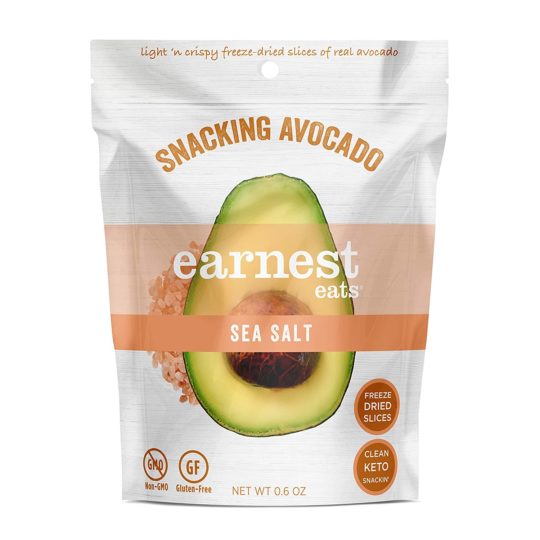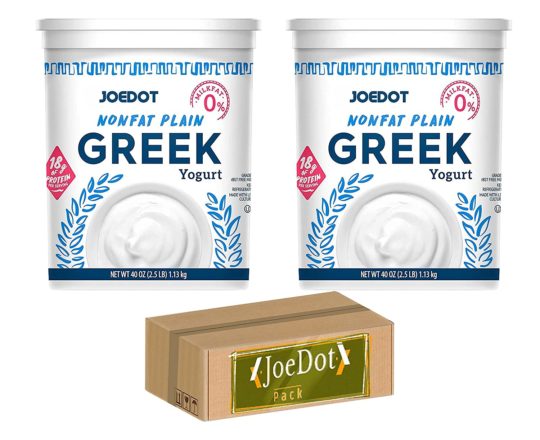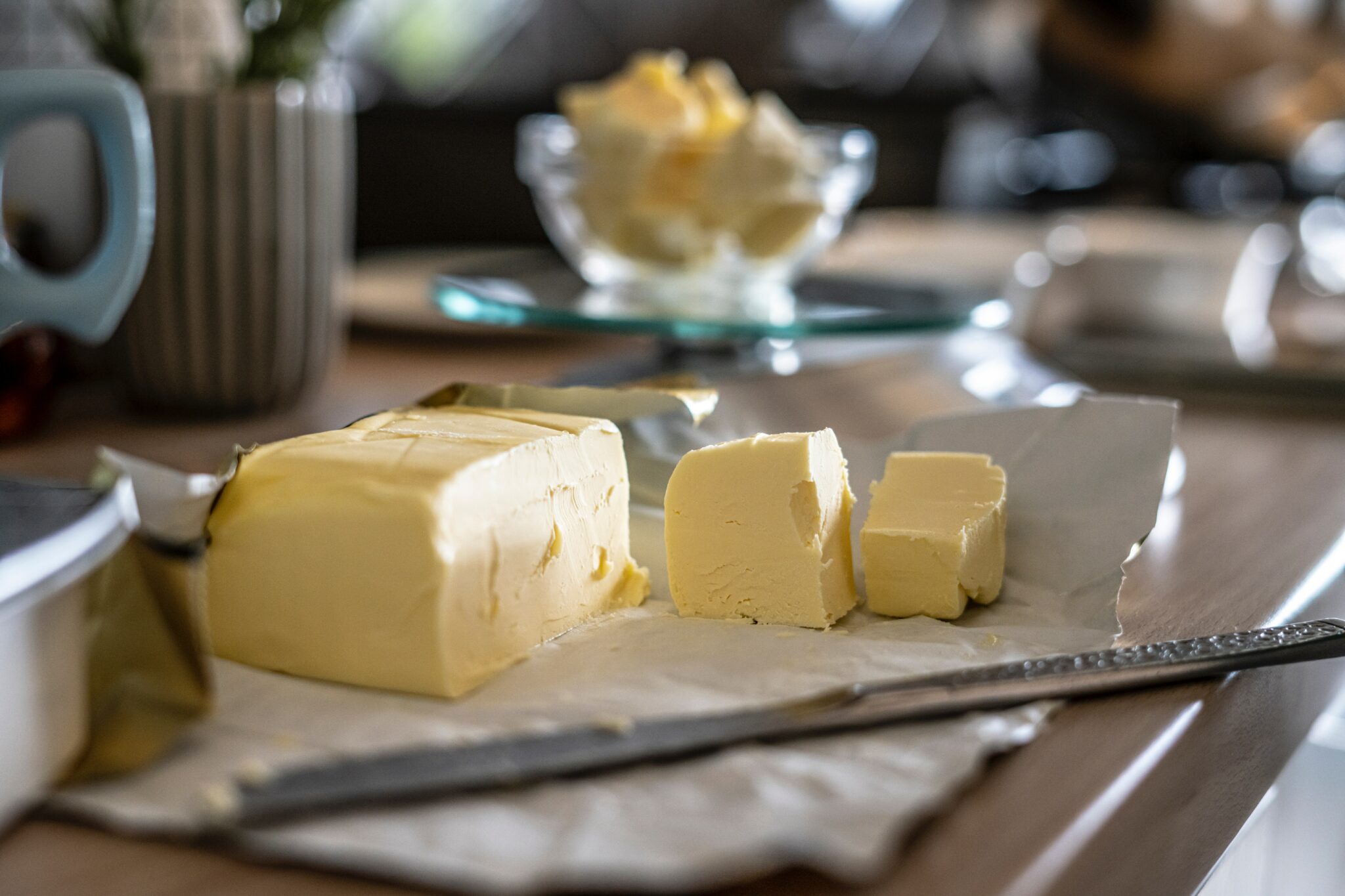Butter is often soft, creamy, and rich, with just a trace of sweetness, which is why the term “butterly” is frequently used to describe other meals with similar quality.
Pastries, cakes, cookies, and other baked items benefit greatly from the addition of butter due to these desirable qualities. One of the most popular purposes of butter is baking to provide flavor to baked goods.
Despite the popularity of butter in cooking procedures, it might not be the best option when considering health. According to certain research, saturated fats in butter may elevate cholesterol levels more than saturated fats in other dairy products such as cream. Butter is very high in calories due to its high-fat content. So if you’re trying to lose weight, cutting less on butter is a good way to start.
Cutting back on the butter in your recipes is easier when you have good substitutes that will help you not to miss it much. This is why we have put together the healthiest alternatives that can replace butter in your baked recipes. Find out how to properly use these substitutes for healthier and great-tasting recipes.
What is butter?
Butter is a dairy product made mostly from fat and protein ingredients of churned cream. It is normally prepared commercially from cow’s milk, but it can also be made from sheep, goats, buffalo, and yaks’ milk. Butter is a semi-solid emulsion of approximately 80% butterfat at room temperature.
Typical butter forms are unsalted and belong to the sweet cream butter category. Salted butter, which has a small quantity of salt added as a preservative, is also available. The pure, golden butterfat from which the milk particles and water have been separated is clarified butter or ghee.
When butter is heated, the milk solids (proteins and sugars) contained in it caramelize, giving it a wonderful nutty flavor. Butter complements and improves the meal’s flavors when used as a cooking medium, such as sautéeing vegetables. It also gives sauces a more diverse flavor and contributes to the flavor and texture of baked foods.
Uses of butter in baking recipes
Butter is utilized as a leavening agent in baking, which means it adds air to baked foods, making them light and fluffy. It also contributes to baked foods’ flaky, moist texture and rich and savory flavor. Baked foods that lack these qualities may be flat, dry, and flavorless.
Some popular baked recipes in which butter is commonly used include the following:
- Butter cake
- Butter cookies
- Box brownies
- Chocolate buttercream
- Fudgy cocoa brownies
- Garlic butter chicken casserole
- Baked cod
- Butter baked chicken wings
- Baked cabbage
- Garlic butter potatoes
- Toasted butter-glazed pecans
- Baked pierogies
- All butter pie crust
- Butter swim biscuits
- Sole filets in lemon butter
Healthy substitutes for butter
Even though butter has amazing qualities that many people covet in their baked recipes, others tend to avoid it because it is high in saturated fat. As a result, saturated fat consumption has been related to an increased risk of heart disease. While the data is conflicting, it is still a good idea to err on the safe side and choose healthier alternatives for butter.
Below, we have highlighted a few of the best and healthiest alternatives for butter in baking procedures:
Avocado

Avocados are high in nutrients and healthy fats and may be used in various recipes. If you desire a higher fiber, higher vitamin K/C/B-5/B-6/E alternative, pureed avocado can be used equally for the butter called for. It is great in many baking recipes, and it can even be used in place of butter on toast. The result is a fantastic-tasting treat!
Use 1 cup of pureed avocado instead of 1 cup of butter in a baking recipe that asks for 1 cup of butter, i.e., an equal substitution ratio. Use dark ingredients such as chocolate to hide the green tint that avocados might cause. This substitution method is the best for most things; there are very few baking recipes that it won’t work with.
Coconut oil

When using an equal amount of coconut oil to the amount of butter asked for in a recipe, it is a successful substitute due to its similar traits of being solid when cold and liquid when warm.
You might detect a flavor difference in the end product if the recipe calls for a lot of butter, so it’s not the ideal choice for recipes such as savory bread, but it has been shown to work great in cakes, cookies, and muffins.
Greek yogurt

If dairy is not a health issue, Greek yogurt provides protein to your meals while also providing a tart flavor that replaces sweetness. The best way to keep baked products creamy and soft is to use full-fat yogurt.
Substitute half the amount of Greek yogurt for the butter needed in a recipe for a higher protein substitute. Because it gives a silky feel, this substitute works especially well in cakes. When cooking mashed potatoes, you can also use Greek yogurt instead of butter; the difference is insignificant.
Use 1/2 cup of Greek yogurt instead of 1 cup of butter in a recipe that calls for it. This substitution choice is suitable for most baked foods, particularly cakes.
Frequently asked questions (FAQs)
Which butter is best for weight loss?
Peanut butter is a great snack for weight loss because peanut butter is high in mono- and polyunsaturated fats.
Is Olive oil healthier than butter?
When you’re trying to eat healthily, olive oil is the way to go. Olive oil has a lower saturated fat content than a butte, and it is more suitable for frying. Olive oil has a burn point of around 410 degrees Fahrenheit.
Is nuttelex healthier than butter?
With a trans fat content of 0.04 percent or less, Nuttelex is nearly free of trans fats. Nuttelex also has a lower saturated fat content than butter, at 65 percent or less. Furthermore, Nuttelex contains vegetable oils. In addition, vegetable oils have higher unsaturated fats (monounsaturated and polyunsaturated) and less saturated fat.
Conclusion
Some people limit their butter use since it isn’t very nutritious compared to the high number of calories per serving. In contrast, others avoid butter because it is heavy in saturated fat, related to an elevated risk of heart disease.
Whatever your reasons for needing a substitute for butter, there are loads of options that can replace it in your recipes. Our suggested options should work to give you healthier baked treats without compromising flavor as per health concerns.
